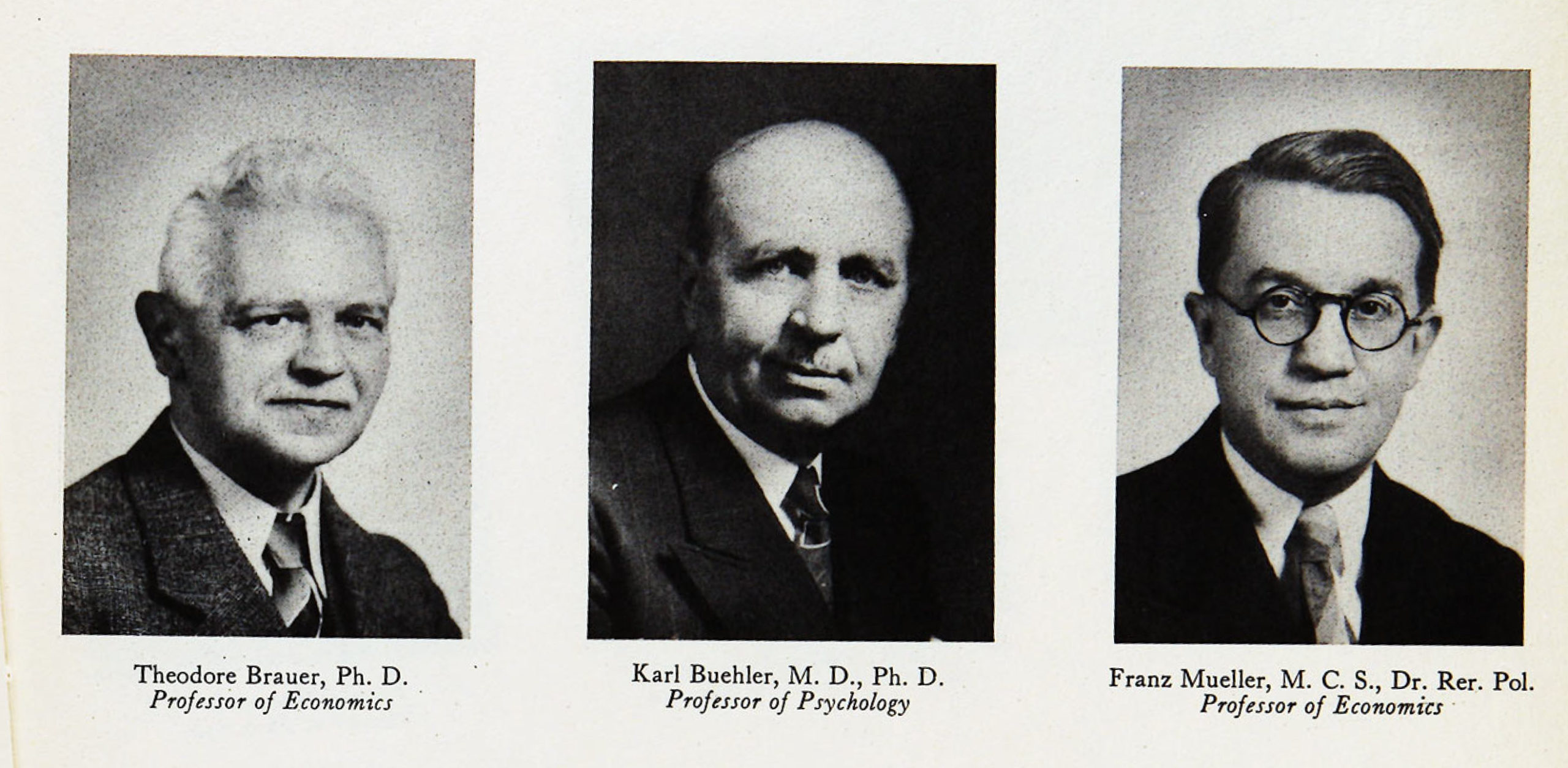In honor of World Refugee Day and refugees around the globe, this edition of "Tales from the Archives" is on refugee scholars from Nazi Germany at the College of St. Thomas.
Theodor Brauer was a leading Catholic social philosopher in interwar Germany. Active in the Christian Trade Union movement, he was fired from his position as director of the Institute for Research in the Social Sciences at the University of Cologne in 1934 and was jailed for a brief time by the German government. Father Lambert Hoffman (chaplain to the St. Paul chapter of the Kolping Society – a guild of Catholic craftsmen) learned of Bauer’s plight and brought it to the attention of Archbishop John Gregory Murray. In 1937, Murray contacted Brauer and invited him to come to St. Paul to teach economics at the College of St. Thomas. Brauer accepted the invitation and continued as a prolific scholar and teacher at St. Thomas until his death in 1942.
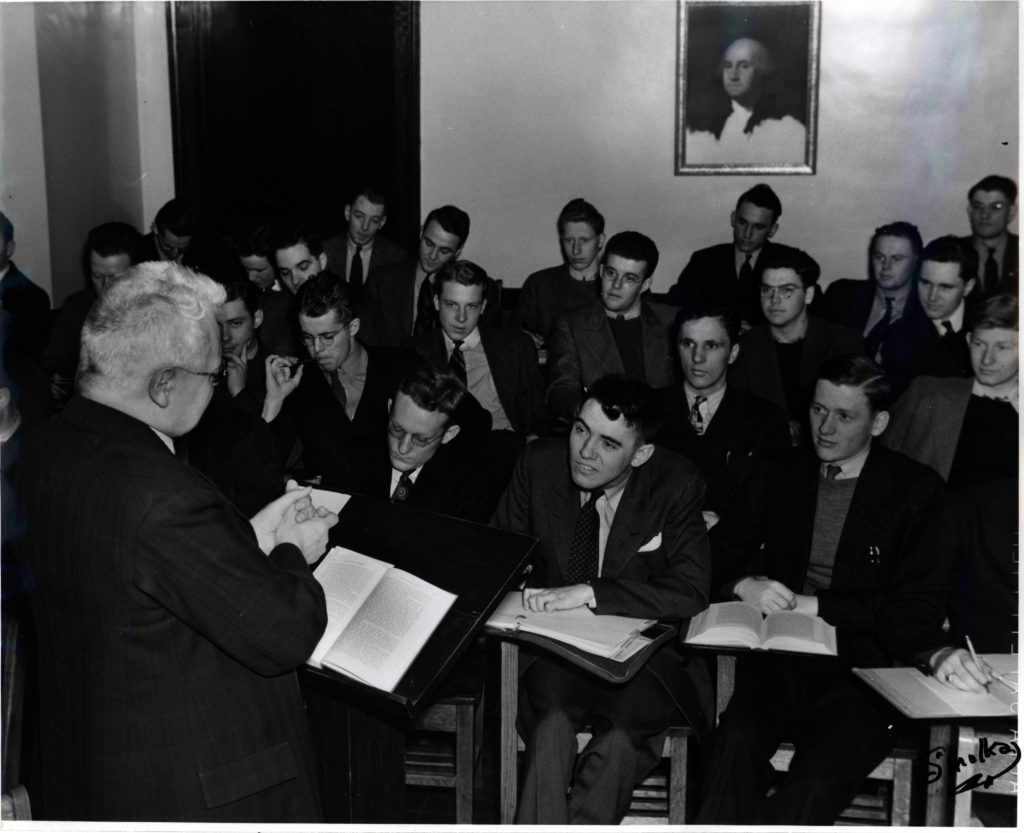
In 1940, Brauer persuaded St. Thomas President Monsignor James Moynihan to recruit Franz Mueller to join the St. Thomas Economics Department. Mueller already had served as Brauer’s assistant for many years. Mueller had been a member of the Konigswinter Study Circle (with Brauer and several others), which completed the preparatory work for the encyclical Quaragesiomo Anno issued by Pope Pius XI. Like Brauer, Mueller was dismissed from his position at the Institute for Research in the Social Sciences in 1934. He taught at the Catholic Worker College in Oxford and at St. Louis University before coming to St. Paul. Mueller served as the Economics Department chair for 20 years before retiring from teaching in 1968. But he continued to be a fixture on the St. Thomas campus as he continued to pursue scholarly research in Catholic social and economic thought until his death in 1994.
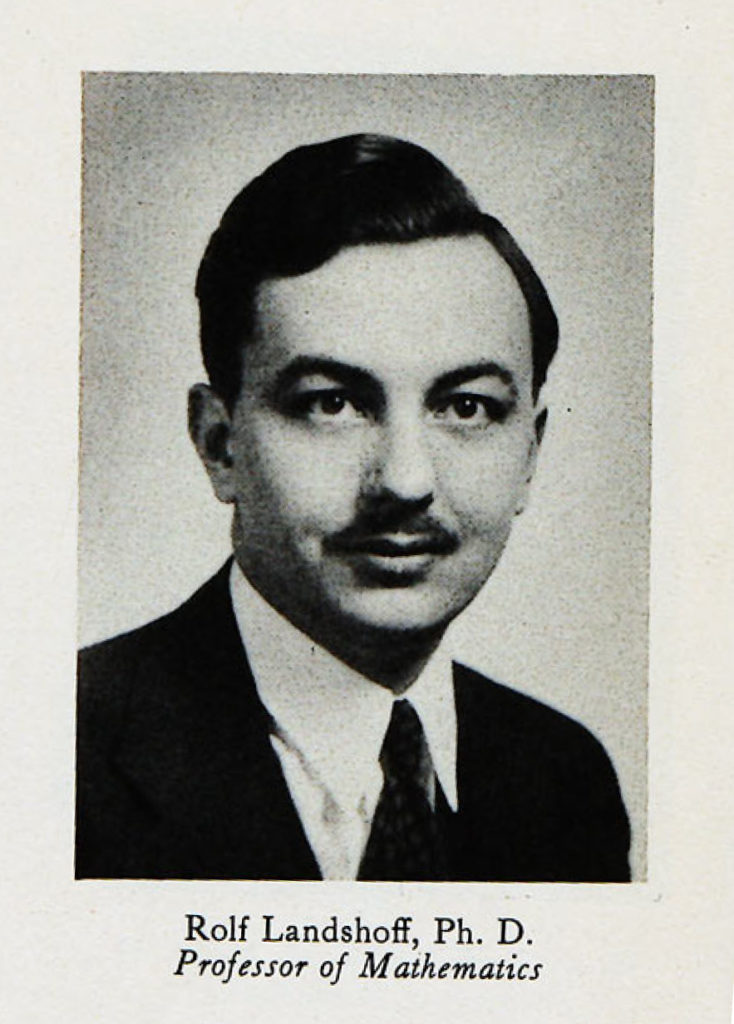
Rolf Landshoff received a doctorate in engineering from the Institute of Technology in Berlin, where he collaborated with other scientists in atomic physics research. Like many other German Jews, Landshoff feared for his safety in Germany. Armed with a letter of recommendation from colleagues (including one from Albert Einstein), he entered the U.S. on a student visa in 1936 and enrolled at the University of Minnesota. Landshoff joined the faculty at the College of St. Thomas in 1940 as a professor of physics and mathematics, where he helped design the physics curriculum for the naval V-12 program established on campus in 1943. He continued to teach at St. Thomas until late 1944, when he was tapped by the U.S. Army Corps of Engineers to work on the Manhattan Project in Los Alamos, New Mexico.
Rudolph Schwenger came to St. Thomas in 1942 as a professor of sociology. During the 1930s, Schwenger advised several companies in Germany and Czechoslovakia on labor issues after receiving his doctorate from the University of Bonn. After Hitler came to power in Germany, he moved to Vienna, where he became editor of “Magazine of Culture and Politics,” which opposed the National Socialist government. When Austria was invaded in 1938, Schwenger was arrested by the Gestapo and imprisoned for three months before being allowed to return to his home country of Czechoslovakia. In spring 1939 when Czechoslovakia was invaded by Germany, he and his wife obtained two of the last visas issued by the country and made a perilous escape to the U.S. A popular professor on campus, Schwenger was known for his interest in intercultural and interracial relations and his enthusiasm for the cause of Catholic Social Action. He passed away in 1947 from complications of a kidney ailment contracted while in custody in Austria.
Dr. Karl Buehler joined the St. Thomas Psychology Department faculty in 1939. Buehler was well known in the early 20th century as a part of a group of psychologists at the University of Wurzburg who pioneered the use of experimental methods to study thought. Buehler was head of the Psychology Department at the University of Vienna when he and his wife fled Austria in 1938 after the German invasion. Buehler taught at St. Thomas for only four years before moving Los Angeles to set up practice as a clinical psychologist.
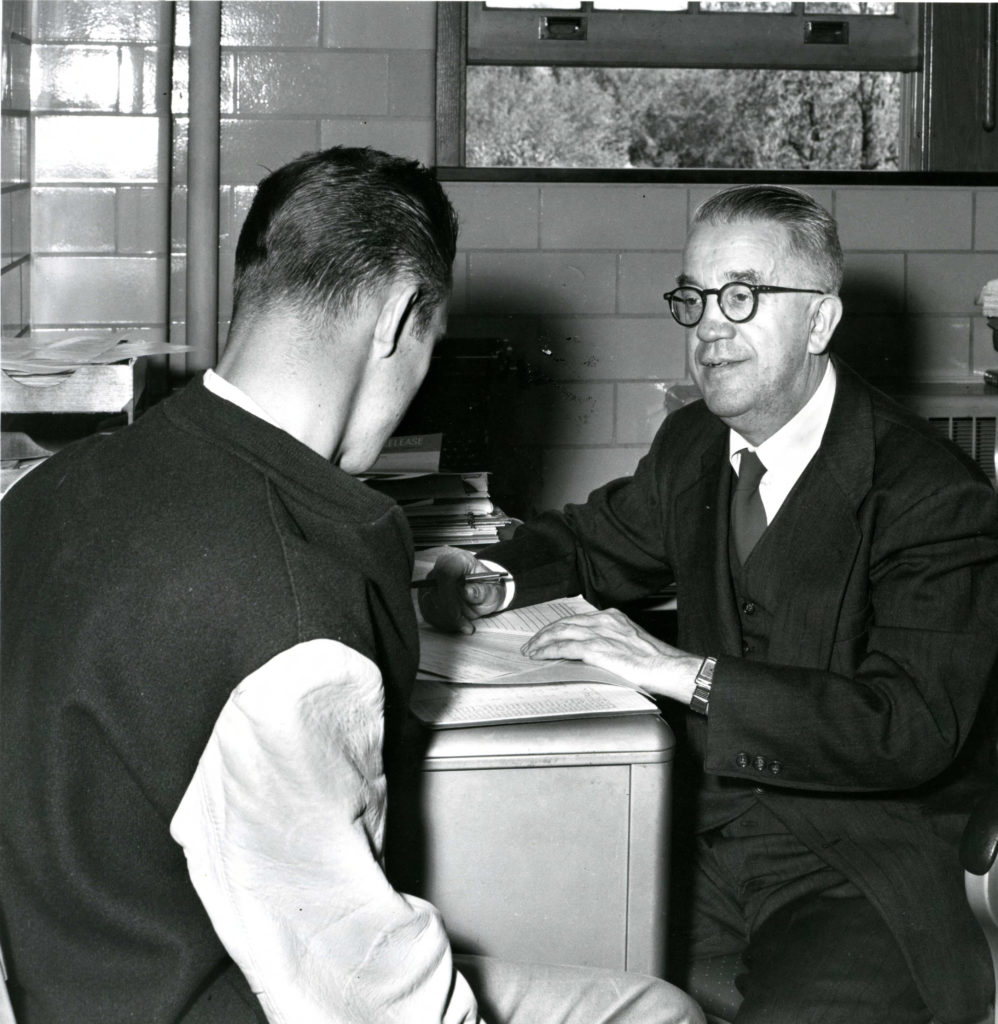
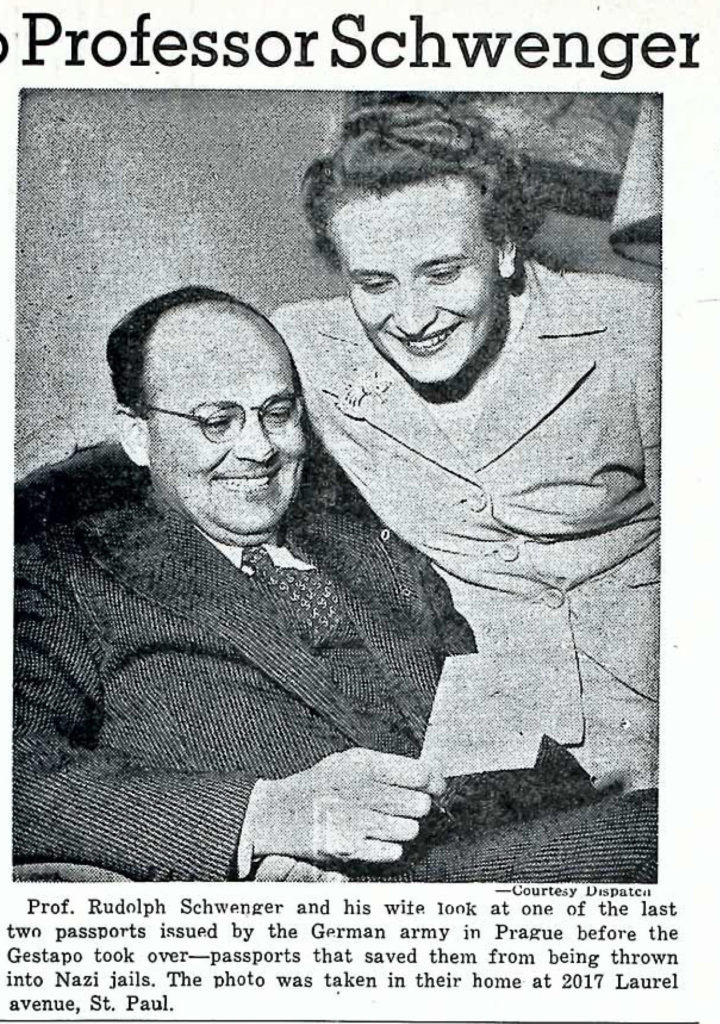
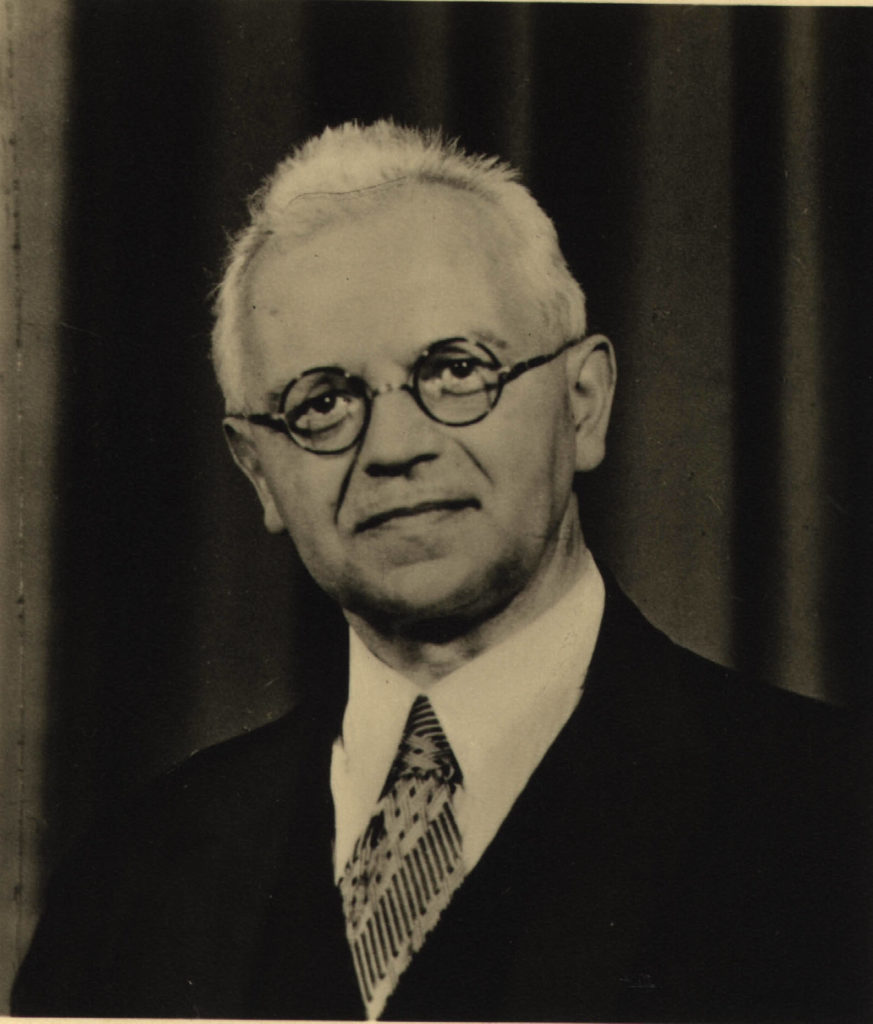
More Tales from the Archives
-
-
Tales from the Archives: Summit Classroom Building
University News -
Tales from the Archives: The Lenten Season at St. Thomas
Faith and Mission -
Tales from the Archives: Early Female Staff Members
People & Culture
